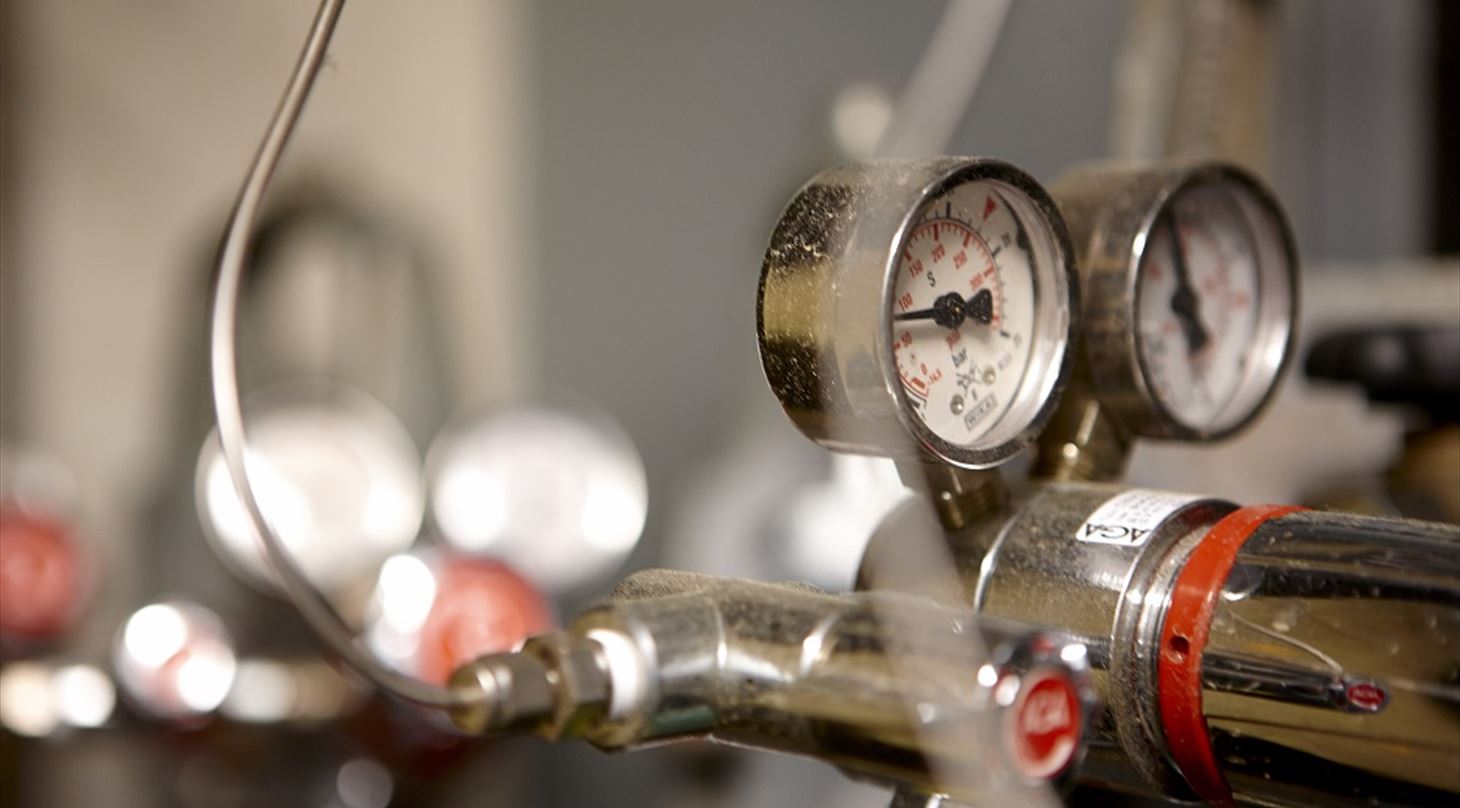
Gas cleaning of synthesis gas
Cleaning of synthesis gas from biomass gasification allows you to take the important step towards sustainable production of clean bio fuels together with the Danish Technological Institute.
Denmark is a global leader in the transformation from fossil fuel to renewable energy sources. One of the promising technologies that will become important in the future energy system is gasification of biomass eg. wood and straw. It opens for multiple utilisations, eg. direct fueling of a gas turbine driven CHP plant or further catalytic conversion into methane or liquid fuels. The gas is a so-called synthesis gas, consisting primarily of hydrogen, H2, and carbon monoxide, CO. Biomass gasification, however, develops a significant amount of tar, which contaminates the catalyst, converting synthesis gas to eg. liquid fuel.
In order to render biomass gasification more attractive, it is therefore necessary to develop the next-generation tar reforming technologies. The Danish Technological Institute is heading this work. We have obtained good results by extracting tar from the synthesis gas in our pilot reactor – a reactor that can become a pilot project in your company. We offer to set up a tar reformer at your location, which allows you to test alternative temperatures, flow rates etc. at a small scale, and avoid the risks that are usually associated with changes in a process of supply.
How can the Danish Technological Institute help you?
- Test of catalysts for tar reformation in a biomass gasification plant or at pilot scale
- Process optimisation and setting of correct flow and temperature
- Online set-up and measuring of gasification gases with GC-TCD/FID/FPD: CO, H2, CO2, CH4, N2, O2, benzene, PAHs, H2S, and SO2 using gas chromatography
- Time of delivery of a tar reformation test is approximately one month. Afterwards, we recommend a test period of at least 1,000 operating hours
- Laboratory testing can normally be done within a course of one to two weeks depending on the parameters to be tested